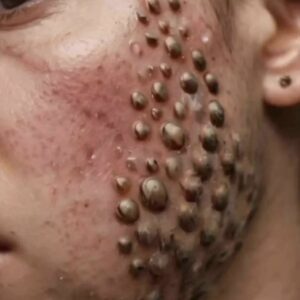The Power of Puzzles: Engaging Your Brain with Fun and Challenging Tasks
Unlocking Brain Benefits Through Puzzle Play
In today’s world, where distractions lurk around every corner, sitting down with a puzzle offers more than just a moment of fun—it’s a powerful way to exercise your mind. Whether it’s a classic crossword, a tricky jigsaw, or a spot-the-difference challenge, puzzles push your brain to think critically, boost memory, and sharpen focus. That image of a challenging visual puzzle full of hidden objects? It perfectly captures how these activities engage our minds in meaningful ways.
Let’s dive into why puzzles aren’t just entertaining but essential for cognitive health, mental well-being, and social connection.
Why Puzzles Are Vital for Cognitive Development
Sharpening Problem-Solving Skills
Every puzzle is a mini adventure in problem solving. You’re not just filling spaces or ticking boxes—you’re decoding clues, spotting patterns, and navigating complexity. This sharpens your brain’s ability to analyze and think logically, skills that translate well into real-life decision-making.
Boosting Memory and Concentration
Puzzles demand your full attention. Whether remembering shapes in a jigsaw or details in a spot-the-difference game, you train your brain to retain information and focus deeply. Over time, this increased concentration can improve your attention span in everyday tasks.
Enhancing Cognitive Flexibility
Many puzzles challenge you to switch strategies, look at problems from different angles, or consider alternative solutions. This mental flexibility is invaluable, helping you adapt quickly in a world that’s always changing.
The Psychological Perks of Puzzle Solving
Stress Relief Through Focused Engagement
When you immerse yourself in a puzzle, you create a break from life’s pressures. Concentrating on the task at hand calms racing thoughts and reduces anxiety. The repetitive, rhythmic nature of puzzles often promotes a meditative state, helping you relax and reset.
The Joy of Accomplishment
Finishing a puzzle triggers a burst of dopamine—the brain’s “feel-good” chemical. That satisfying “aha!” moment floods you with a sense of pride and motivation, encouraging you to tackle new challenges with confidence.
Different Puzzle Types and Their Unique Brain Benefits
Visual Puzzles and Spot-the-Difference Challenges
These sharpen your observation skills by training you to spot subtle differences and fine details, enhancing visual acuity and patience.
Logic Puzzles and Brain Teasers
Sudoku, riddles, and logic grids boost analytical thinking and pattern recognition, honing your ability to approach problems methodically.
Jigsaw Puzzles
They improve spatial reasoning and memory as you connect individual pieces to form a bigger picture, encouraging holistic thinking.
Word Puzzles and Crosswords
Perfect for language lovers, these games expand vocabulary, enhance verbal skills, and encourage creative word associations.
The Social Side: Why Puzzles Are Great for Connection
Encouraging Teamwork and Cooperation
Working on puzzles together requires communication and collaboration. You learn to share ideas, divide tasks, and celebrate small victories, all while bonding with friends or family.
Adding a Competitive Edge
Friendly puzzle competitions can spark excitement and motivate everyone to think faster and smarter, turning mental exercise into a fun social event.
How Puzzles Boost Overall Well-Being
Keeping the Mind Sharp as You Age
Regular puzzle-solving acts like a workout for your brain, helping slow cognitive decline and maintain mental agility as you grow older.
Building Patience and Focus
Puzzles teach you to slow down and focus intently, skills that benefit work, relationships, and personal growth.
Conclusion: Embrace Puzzles as Your Brain’s Best Friend
Puzzles aren’t just a pastime—they’re a mental gym, a stress-buster, and a social glue. From boosting memory to sharpening problem-solving skills, they offer countless benefits packed into moments of joy and challenge. So next time you want to train your brain or unwind with purpose, grab a puzzle. Your mind will thank you for the workout—and your heart for the fun.





